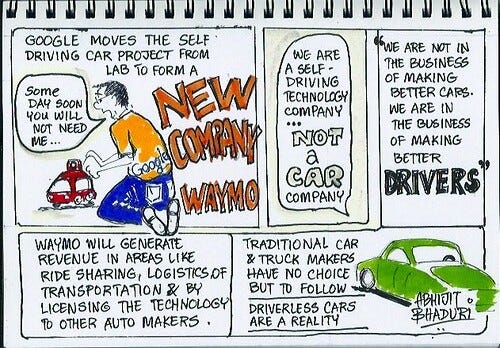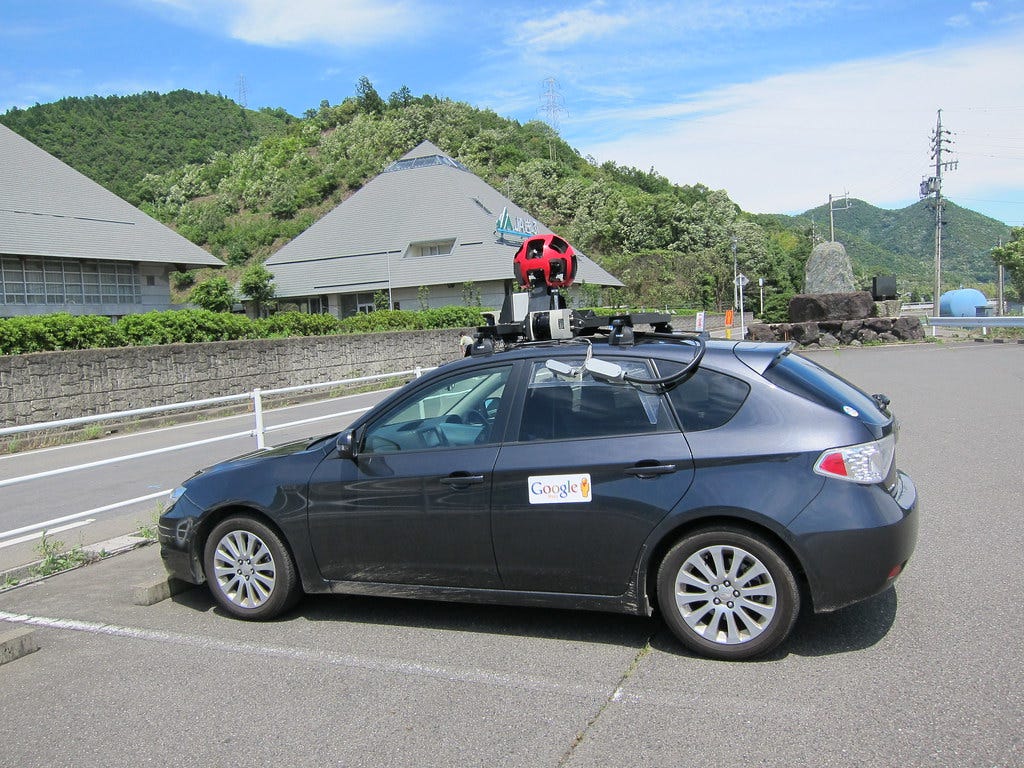
In two weeks, Dune Part 2 will premiere in theaters around North America. I watched Part 1 again last week, and I’m impressed at just how faithful it is to the original novel by Frank Herbert that I first read as a high school student. While the dialogue can be turgid at times, its themes, beginning with the risks of entrusting absolute power to a charismatic leader, are positively timeless. Every time I pick it up again, I peel back another layer and discover something that says something equally profound or disturbing about our own world.
For those who have not read the novel or seen the film, Dune refers to Arrakis, a desert planet that is the sole source of melange, know as “the spice,” an addictive substance that man must use in order to make the complicated calculations necessary to navigate across interstellar space.1 Melange plays this central role in Herbert’s future because tens of thousands of years before, humanity banned computers after fighting a war to avoid being exterminated by artificial intelligence (AI).2
The text of the novel refers to this war as the “Butlerian Jihad.” Being part of the novel’s back story, there are scant details about that turning point in this fictional history of humanity. Herbert does provide us with a verse from his universe’s bible that seems prophetic in light of the contemporary debates between Sam Altman and Elon Musk about what guardrails we need as scientists develop AI.3
“Thou shalt not make a machine in the likeness of a human mind.”
Which brings us to the streets of San Francisco in the present day.
A crowd vandalized and set fire to a Waymo self-driving car using a firework in San Francisco on Saturday, the Alphabet-owned company and authorities said, marking the most destructive attack so far on driverless vehicles in the U.S.
[…]
Michael Vandi, a witness who posted videos of the incident, told Reuters that people were celebrating China's Lunar New Year by setting off fireworks. A person jumped onto the hood of the Waymo vehicle and broke its windshield. Another person also jumped on the hood 30 seconds later as some in the crowd clapped in approval, he told Reuters in an X direct message.
"That was when it went WILD," he wrote, describing people with skateboards breaking the glass and others graffitiing the car. "There were 2 groups of people. Folks who encourage it - and others who were just shocked & started filming. No one stood up - i mean there wasn’t anything you could do to stand up to dozens of people."
I grew up in the computer business. Before my father did his time with Apple Computer, he worked with a team that pulled off the first computer-mediated stock trade on the old American Stock Exchange. He told me of another instance when a young Bill Gates tried to convince him to package a copy of Microsoft Basic with an intelligent terminal he was selling.
When you grow up like that, you can’t help but believe that technology can help transform our world for the better, something that has influenced my career from the start. I spent 14 years working in nuclear energy because I thought it was a technology that was unfairly maligned even though it offered humanity a way out when it came to balancing economic growth and protecting our planet. I work in Bitcoin now because I think it can protect billions of people who have seen their wealth inflated away by people and institutions beyond their control.
I don’t have much truck for folks who commit acts violence to advance a political or cultural agenda. I believe that even in days like these our system allows us avenues to advance change peaceably, even if it might get loud.
Still, I’d be lying if I said I didn’t understand something of the impulse that led that crowd to attack a self-driving car, just as I can condemn a hockey player who cross-checks an opponent in the head, while admitting that I had felt that same impulse more often than not when I played the game.
Understanding something is not endorsing it. But acknowledging a problem is the first step toward solving it. I’ll leave you with another story about Google. About a decade ago I was driving on a rural road in Nebraska on my way to give a presentation to the employees at a nuclear power plant. At one point, I moved to pass a car that seemed to be traveling too slowly in the right lane.

As I pulled up beside it, I noticed a camera lashed to the roof and that the driver was using a laptop with his hands off the steering wheel. I had encountered a self-driving car doing yeoman’s work for Google Maps Street View, and I couldn’t contain a sense of adulation at the encounter. It was a product I had used and enjoyed, and it was a real kick seeing that work happen in real time.
A few weeks later, I was walking in between stores at a shopping center not far from my home in Virginia. As I was headed between the dry cleaner and the grocery store, I crossed paths with a bespectacled gentleman heading in the other direction. As I sidestepped to avoid him, I saw a flash of light near one of his lenses.
He wasn’t wearing a pair of prescription lenses, he was wearing a Google Glass, and my immediate thought was that his wearable computer had just taken my photo.
As I passed near him, it was easy to sense some discomfort on his part. When I caught my own reflection in one of his lenses, I could see why. It was the face of contempt.
We have a lot of work to do.
While it’s an obvious allegory for the centrality of oil in our own world, I’ve seen “the spice” described as a combination of oil and cocaine. Given how many climate activists will say that humanity needs to break its addiction to oil, the comparison seems apt.
I know this is a sports blog, but sometimes I need to geek out. Thanks for indulging me.
Rather than follow this debate in real time in online media, I recommend reading the authorized biography of Musk by Walter Isaacson. In it, Isaacson details a debate between Musk and Google co-founder Larry Page, where Page dismisses Musk’s concern about AI supplanting humanity. In Page’s view, that eventuality would simply be an example of evolution taking its natural course. Musk was horrified at the thought. While he is a big fan of the late Douglas Adams and his Hitchhiker’s Guide to the Galaxy, I’m sure Musk, a confirmed science fiction fan, is more than familiar with Dune and the “Butlerian Jihad.”



